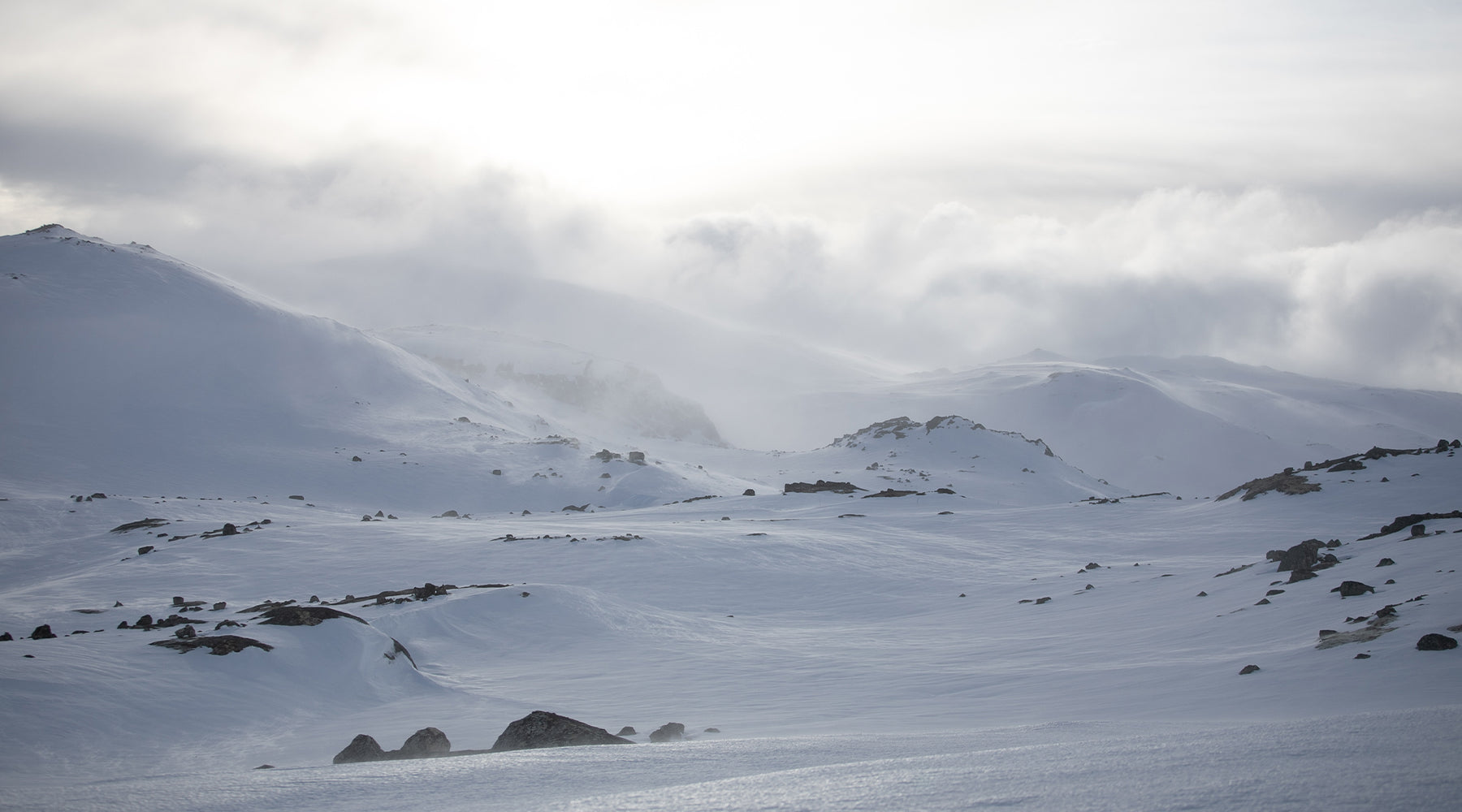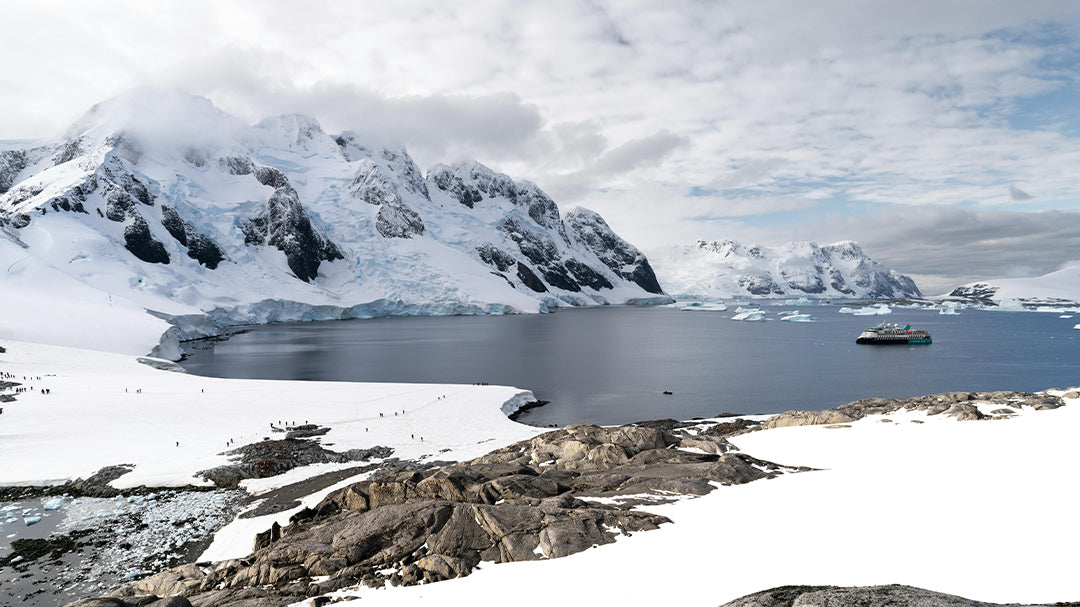
My solo crossing of Antarctica
We chat to Louis Rudd MBE about his remarkable solo traverse of Antarctica, making him the only person to have crossed Antarctica twice on foot.
Words by Patrick Tillard // Images by Louis Rudd
On Christmas Day 2018, rather than the usual merriment of bulging stockings and mince pies, Captain Louis Rudd MBE was hauling a 130kg sled for 13 hours in temperatures of minus 30ºC. He allowed himself a three-minute break every two to three hours – to have a pee, a drink and momentarily catch his thoughts – and then pressed on once more towards the edge of the most unforgiving continent on earth. By this stage it was routine; day 53 into his solo, unsupported, unassisted crossing of Antarctica.
He successfully reached the Ross Ice Shelf three days later, a gruelling haul of 920 miles, finishing two days behind American Colin O’Brady, who had set off from Messner on the same date (November 3rd 2018), with the same world-first mission in his sights. In doing so, Rudd, became the most decorated polar explorer of all time, with more miles covered in Antarctica than any other person in history.

Rudd returned to the UK to blistering media interest around this trans-Atlantic race. In fact, it was never meant to be a head-to-head; O’Brady totally blind-sided Rudd. After a year of openly documenting his intentions for crossing the frozen continent, he learned of the American’s participation via email, five days before he was due to fly out to Punta Arenas in Chile for the final preparations. The media pricked its ears to the news. Rudd, however, tried to steer clear of the hype and stick to his original game plan.
“I made a conscious decision to eliminate the competition element and not get drawn into the contest,” says Rudd. “The crossing is hard enough without it being a race. I decided that my main effort was focused on a successful finish. If I had failed because I got tempted to race I would have regretted that for the rest of my life.”

Rudd also had a greater spur to motivate him than a world-first: he was carrying with him the family crest of his late friend Henry Worsley, who tragically died attempting the very same crossing in 2016. He was set on taking this all the way.
Only a handful of individuals worldwide have the necessary experience to be granted permission for a solo, unaided crossing of Antarctica. And for good reason. Over the years, many elite athletes have tried to conquer what has long been regarded as the greatest remaining solo undertaking, but failed, ultimately succumbing to the demands of the hostile environment.
“You have to have a deep respect for Antarctica,” says Rudd. “It is a privilege to go down there and witness this vast unspoilt wilderness, but one mistake could be life-threatening. I personally quite like that prevailing threat and sense of vulnerability. It is the sign of genuine adventure. It is a minor miracle that Colin and I both finished.”
To add further kudos to this achievement by both men, it was one of the worst seasons in recent memory – of the eight other solo expeditions in Antarctica, all of whom were aiming for the South Pole, only three succeeded.

So, what gives Rudd the ability to persevere where others can’t?
“Thirty-three years of military service gives you a natural mental robustness,” he explains. “In low moments, of which there were quite a few, I would remind myself that no one was shooting at me. No one was trying to kill me. It could be worse. Plus, no one forced me to be there – I chose to be there.
“I was also fundraising for soldiers with life-changing injuries – it kept things in perspective. On top of that, a huge amount of time, effort and money went into the expedition and I didn’t want to let people down.” Over the course of the trip Rudd amassed a loyal following, as his trials and tribulations were documented daily by his title sponsor and apparel supplier, Shackleton.

“It’s fair enough to call for help if you have a serious issue, but not because it’s hard. You know it’s going to be hard. Conditions change by the hour in Antarctica and no two days are ever the same. You have to be very comfortable in your own headspace. It is absolutely key. Most days you go through the full range of emotions.
“With the personal stuff I knew I’d miss – my family, food, creature comforts, etc. – I mentally boxed it up and buried it at the end of the trip. I only get to it when I finish. But I didn’t entertain the idea of finishing until I had reached the Leverett Glacier, about 100 miles from the Ross Ice Shelf.”
Instead, Rudd broke the expedition down into 10-day blocks, as this was how his food rations were packaged. “I never looked further ahead than those 10 days,” he says. “That’s also when I changed my socks – the only item of clothing I changed throughout.

“Weight is so critical,” says Rudd, seeing my eyes widen at the prospect of wearing the same pair of sweaty boxer-shorts for two long months. “The first time I got to experience my full pulk was when I landed in Antarctica, and it was horrendous. I had to strip it out.”
He removed his spare pair of boxer-shorts, the Christmas presents given to him by his wife and children, and anything that wasn’t an absolute necessity to the expedition. In Antarctica, cutting weight from the sled is of greater importance than hygiene. The result was a starting load of 130kg: 90kg of food; 20kg of cooker fuel; and 20kg for clothes, tent, sleeping bag, communications, and seven pairs of socks – everything he needed for the 920-mile crossing and an intake of 6000 calories a day.

Fifty-six days later, and with a final push of 34 non-stop miles, Rudd hauled his way into the history books. He was emaciated, exhausted, relieved; now part of an exclusive two-man club who can say they have crossed Antarctica unassisted and alone, an epic feat that has eluded explorers for decades.
Rudd was equipped in a Shackleton down parka, handmade in the UK.

